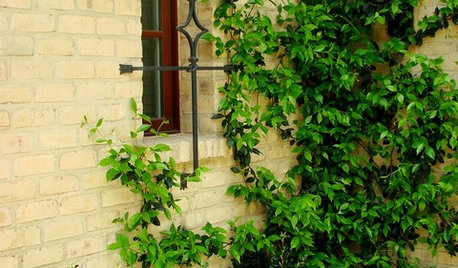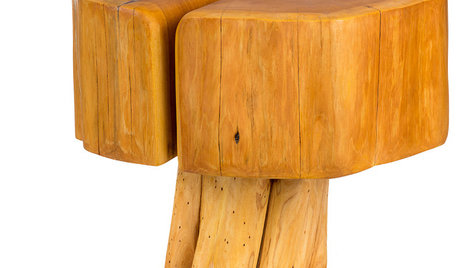Can I lower the Phosphorus, Calcium and Iron organically?
ladyrose65
12 years ago
Related Stories

MUDROOMSThe Cure for Houzz Envy: Mudroom Touches Anyone Can Do
Make a utilitarian mudroom snazzier and better organized with these cheap and easy ideas
Full Story
LIFEHow Your Landscaping Can Keep Burglars Away
Prevent home break-ins with strategic landscaping and good practices instead of menacing — and maybe less effective — measures
Full Story
FEEL-GOOD HOME12 Very Useful Things I've Learned From Designers
These simple ideas can make life at home more efficient and enjoyable
Full Story
PRODUCT PICKSGuest Picks: Beautiful Things You Can Feel Good About Buying
Upcycled, ecofriendly or just made responsibly, these home accessories and furniture pieces will keep your conscience clear
Full Story
HOUSEKEEPINGCan-Do Cleaning Strategies for Busy People
While you dream of having a maid (to go with the cook and chauffer), this simplified cleaning routine can keep your real-world home tidy
Full Story
DECORATING GUIDESThe '70s Are Back. Can Ya Dig It?
No need to cringe. These 21 groovy blasts from the past are updated to look fabulous today
Full Story
MOST POPULARSee the Difference a New Back Deck Can Make
A dramatic 2-story porch becomes the centerpiece of this Ohio family’s renovated landscape
Full Story
BUDGET DECORATINGThe Cure for Houzz Envy: Entryway Touches Anyone Can Do
Make a smashing first impression with just one or two affordable design moves
Full Story
KITCHEN STORAGEMove Over, Soup Cans — the Kitchen Appliances Are Here
Design a pantry with room for mixers, coffeemakers and more, for less countertop clutter and handy access
Full Story
LANDSCAPE DESIGNEasy Ways to Manage Stormwater for Lower Bills and a Healthier Earth
Send cleaner runoff into local waterways and spend less on yard irrigation with these simple landscaping approaches
Full StoryMore Discussions








fortyonenorth
TheMasterGardener1
Related Professionals
Cottonwood Landscape Architects & Landscape Designers · Fort Lee Landscape Architects & Landscape Designers · Forest City Landscape Architects & Landscape Designers · Manchester Landscape Contractors · Wilmington Landscape Contractors · Dinuba Landscape Contractors · East Hanover Landscape Contractors · Gaithersburg Landscape Contractors · New Cassel Landscape Contractors · Paso Robles Landscape Contractors · Tinton Falls Landscape Contractors · Tustin Landscape Contractors · Whitehall Landscape Contractors · Monroe Decks, Patios & Outdoor Enclosures · Randallstown Decks, Patios & Outdoor Enclosuresfortyonenorth
Kimmsr
strobiculate
TheMasterGardener1
toxcrusadr
TheMasterGardener1
darth_weeder
toxcrusadr
TheMasterGardener1
TheMasterGardener1
darth_weeder
TheMasterGardener1
sunnibel7 Md 7
toxcrusadr
Michael
TheMasterGardener1
TheMasterGardener1
novascapes
fortyonenorth
toxcrusadr
TheMasterGardener1
TheMasterGardener1
Michael
TheMasterGardener1
novascapes